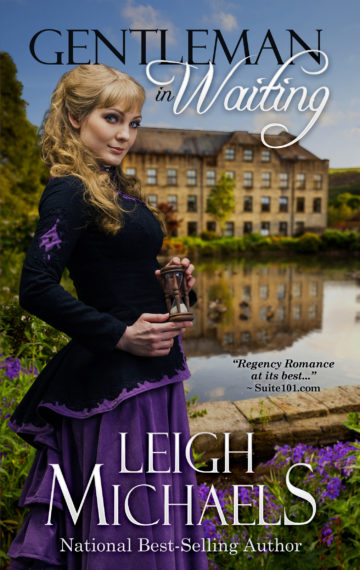Everything depends on the baby…
Lady Mariah Gerrard anxiously awaits the birth of her stepmother’s child, desperately hoping for a boy who will inherit their father’s title so Mariah can gain access to her dowry and her freedom. Her father’s cousin John, the next heir in line, has other plans – so if the baby is a girl, disaster looms for Mariah.
When Myles Moreton comes to Edgeworth to manage the family estate, Mariah’s no longer certain that even the birth of a boy will solve her problems. Why is money missing? Why is Mariah’s dowry in doubt? Despite his genial façade, is Cousin John planning mischief – or worse? Why is Myles Moreton, rather than the late earl’s trustees, suddenly in control? And how can Myles – a man who’s entirely ineligible – be not only completely maddening but utterly charming and very, very tempting?
As the family gathers to await the birth, Mariah and Myles search for answers – and they find that playing the waiting game can have its own reward.
“I have always been fascinated by the way that inheritance law worked in Regency England — the oldest son got everything; other sons were often left to make their own way in the world, only boys could inherit titles (with rare exceptions), and daughters were purely an afterthought. The point, of course, was to keep family estates intact through the generations, even if that meant that younger branches of the family were left out in the cold.
“After the death of a peer who didn’t have a surviving son, there actually was a waiting period to determine whether the wife was pregnant. If she was, no determination could be made about the estate until the birth of that child. So Mariah’s story is completely accurate — if her stepmother’s child is a boy, he’ll be the earl from the moment of his birth. But if the baby’s a girl, Mariah and her stepmother — and, of course, the baby — will be completely dependent on the good will of the next heir…” — Leigh Michaels

